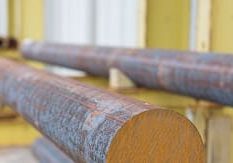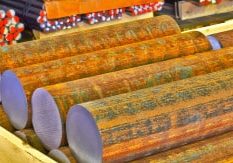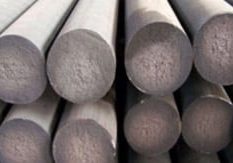Cast Iron
Cast Iron Supplier: Unibar 200, 250, 300, 350 & 400-18LT



Unibar 200
Unibar 200 is a versatile cast iron grade known for its exceptional machinability and excellent surface finish. As the softest grade in the Unibar portfolio, it offers ease of processing, allowing for efficient production of intricate components. While its strength and wear resistance are limited compared to harder grades, Unibar 200 excels in noise and vibration damping, making it suitable for applications requiring reduced noise levels and improved mechanical performance. Additionally, its good thermal conductivity contributes to efficient heat dissipation, further enhancing its suitability for various engineering applications.
Unibar 250
Unibar 250 is a versatile pearlitic-ferritic cast iron that strikes a balance between strength and wear resistance, surpassing the capabilities of Unibar 200. Despite its increased strength, Unibar 250 retains good machinability and an excellent surface finish, facilitating efficient production of complex components. The unique graphite structure within Unibar 250 enhances its noise and vibration-damping properties, making it suitable for applications requiring reduced noise levels and improved mechanical performance. Additionally, its good thermal conductivity contributes to efficient heat dissipation, further expanding its applicability in diverse engineering scenarios.
Unibar 300
Unibar 300 is a high-performance grey iron alloyed to achieve superior wear resistance, strength, and heat treatment response compared to its predecessors, Unibar 200 and Unibar 250. Despite its enhanced mechanical properties, Unibar 300 maintains reasonable machinability and an excellent surface finish, facilitating efficient production of intricate components. The unique graphite structure within Unibar 300 contributes to good noise and vibration-damping properties, making it suitable for applications demanding reduced noise levels and improved mechanical performance.
Unibar 350
Unibar 350 is a specialised alloyed cast iron designed to deliver exceptional wear resistance and strength. Its pearlitic structure enables superior heat treatment response compared to Unibar 200, 250, and 300, making it suitable for a wide range of heat treatment applications. Despite its enhanced properties, Unibar 350 maintains reasonable machinability and produces an excellent surface finish after machining. Additionally, its graphite structure contributes to good noise and vibration-damping characteristics, making it a versatile material for various engineering applications.
Unibar 400-18LT
Unibar 400-18LT is a high-performance spheroidal graphite iron that offers exceptional machinability, coupled with excellent low-temperature impact resistance, fatigue strength, electrical conductivity, and magnetic permeability. Compared to Unibar 400-15, Unibar 400-18LT exhibits increased ductility, enhancing its formability and overall mechanical performance. Additionally, its graphite structure contributes to good noise and vibration-damping characteristics, making it a versatile material for various engineering applications.
FAQs on Cast Iron
Absolutely! Cast iron is completely oven-safe, making it ideal for dishes that transition from stovetop to oven, like frying chicken and then baking it to a golden crisp.
- Durable
- Heat Retention
- Versatile
- Affordable
Cast iron is not a single material, but a family of iron-carbon alloys with varying properties. When selecting cast iron for your project, consider these critical factors:
Application Requirements: Identify the primary function of the cast iron component...
- Strength: For parts requiring high tensile or compressive strength, ductile iron or CGI might be better options than grey iron.
- Impact Resistance: If the component will experience shock or impact loads, ductile iron is a strong contender.
- Machinability: If extensive machining is needed, grey iron's excellent machinability can be a benefit.
- Heat Resistance: Some applications require heat resistance. Consider the operating temperatures and choose a grade that can withstand them.
- Weight Considerations: Cast iron is generally heavy. If weight is a critical factor, explore alternative materials or consider optimizing the cast iron component design.
- Corrosion Resistance: While cast iron generally offers decent corrosion resistance, some grades excel in specific environments. For example, some grades with higher nickel content provide better resistance to saltwater corrosion.
- Cost: Cast iron offers excellent value, but there are cost differences between grades. Ductile iron, for example, may have a slightly higher cost than gray iron.
While cast iron does corrode, it doesn't necessarily do so easily in the same way that some other ferrous metals like mild steel might.
